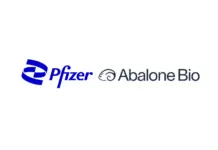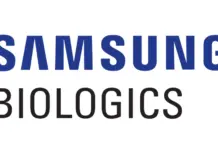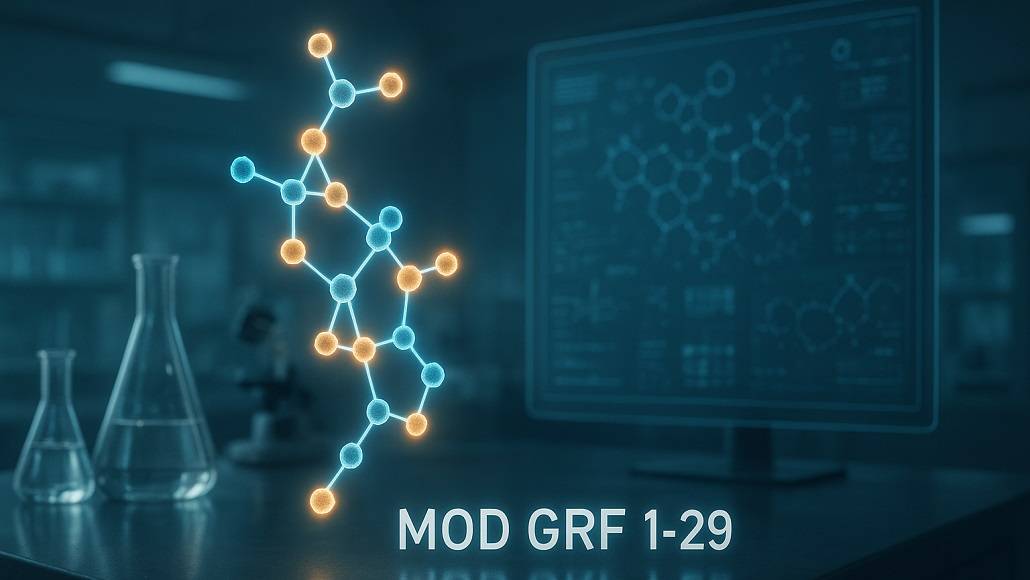The Mod GRF 1-29 peptide has garnered attention in scientific research due to its hypothesized role in regulating growth hormone. As a modified analog of growth hormone-releasing hormone (GHRH), this peptide is believed to exhibit unique properties that distinguish it from its endogenous counterpart.
Investigations purport that Mod GRF 1-29 might contribute to cellular growth, metabolic regulation, and tissue adaptation, making it a compelling subject for further exploration. This article explores the speculative implications of Mod GRF 1-29 in various fields, including endocrinology, musculoskeletal studies, neurobiology, and regenerative science.
Structural Composition and Mechanism of Action
Mod GRF 1-29 is a synthetic peptide composed of 29 amino acids designed to mimic the active sequence of endogenously occurring GHRH. It has been hypothesized that this peptide may interact with growth hormone-releasing hormone receptors (GHRHR) in the anterior pituitary gland, potentially stimulating growth hormone release. Research indicates that Mod GRF 1-29 might exhibit better-supported stability compared to endogenous GHRH due to specific amino acid modifications.
Unlike full-length GHRH, Mod GRF 1-29 is theorized to possess improved resistance to enzymatic degradation, which may prolong its presence within a research model. Investigations suggest that this increased stability might allow for more sustained engagement with GHRHR, potentially amplifying its support for growth hormone secretion. Scientists continue to explore the peptide’s theoretical interactions with endocrine pathways, aiming to understand its broader implications in biological systems.
Possible Implications in Endocrinological Research
Growth hormone regulates cellular growth, metabolism, and tissue repair. Research suggests that Mod GRF 1-29 may be examined for its potential involvement in endocrine studies, particularly in the modulation of growth hormone. Investigations purport that this peptide may contribute to understanding the mechanisms underlying growth hormone secretion and its downstream supports.
Scientists have hypothesized that Mod GRF 1-29 may be explored in research related to metabolic equilibrium, where growth hormone supports lipid metabolism, glucose regulation, and protein synthesis. Some studies suggest that the peptide might be examined for its theoretical role in metabolic disorders, including impaired growth hormone signaling. While definitive conclusions remain elusive, ongoing studies aim to determine whether Mod GRF 1-29 might be relevant in endocrinological research.
Musculoskeletal Adaptation and Cellular Growth Research
Beyond endocrinology, Mod GRF 1-29 has been theorized to exhibit properties relevant to musculoskeletal adaptation. Research indicates that growth hormones play a role in muscle development and tissue repair, leading scientists to speculate on the potential involvement of Mod GRF 1-29 in these processes. Investigations suggest that the peptide may contribute to cellular growth mechanisms by interacting with pathways involved in protein synthesis and satellite cell activation.
Some researchers have hypothesized that Mod GRF 1-29 may be examined in studies related to muscle cell regeneration, particularly in conditions where cellular repair mechanisms are compromised. Scientists continue to explore whether the peptide may be relevant in investigations assessing musculoskeletal adaptation, including cellular age-related decline and recovery of muscular tissue. While further inquiry is required to establish its precise role, the intersection of Mod GRF 1-29 and musculoskeletal research remains an area of scientific interest.
Neurobiological Considerations and Cognitive Research
Growth hormone has been linked to neurobiological processes, prompting researchers to explore the theoretical engagement of Mod GRF 1-29 with neural pathways. Studies suggest that growth hormone receptors are present in neural tissue and may play a role in cognitive function, mood regulation, and neuroprotection. Investigations purport that Mod GRF 1-29 might be examined within research domains related to neurodegenerative conditions.
The potential involvement of growth hormone in neuroplasticity has led scientists to hypothesize that Mod GRF 1-29 may interact with pathways associated with synaptic modulation. Some exploratory studies indicate that growth hormone signaling might support neurotransmitter release and receptor sensitivity, potentially contributing to cognitive function assessments. While research remains speculative, ongoing investigations aim to determine whether Mod GRF 1-29 might be relevant in neurobiological studies.
Regenerative Science and Tissue Research
Regenerative science has become a focal point in scientific research, with peptides such as Mod GRF 1-29 being considered for their potential implications. Investigations suggest that Mod GRF 1-29 may be studied for its potential role in tissue engineering, where cellular adaptation and repair mechanisms are crucial for effective outcomes. Researchers have hypothesized that the peptide may contribute to wound healing and tissue regeneration investigations.
Some studies suggest that Mod GRF 1-29 may be examined in the context of stem cell research, where cellular differentiation and proliferation are crucial factors. Scientists continue to investigate whether Mod GRF 1-29 may be relevant in experimental models that are relevant to assessments of regenerative processes. While definitive findings remain speculative, ongoing research aims to expand knowledge of peptide-based regenerative strategies.
Conclusion
Mod GRF 1-29 peptide presents an intriguing subject of scientific research, with potential implications spanning endocrinology, musculoskeletal studies, neurobiology, and regenerative science. While investigations suggest promising possibilities, definitive conclusions remain speculative. Continued exploration may provide deeper insights into its molecular properties, thereby fostering a more comprehensive understanding of growth hormone interactions within various scientific domains. Visit this website for more useful peptide data.
References
[i] Jetté, L., Léger, R., Thibaudeau, K., Benquet, C., Robitaille, M., Pellerin, I., Paradis, V., van Wyk, P., Pham, K., & Bridon, D. P. (2005). Human growth hormone-releasing factor (hGRF)1–29-albumin bioconjugates activate the GRF receptor on the anterior pituitary in rats: Identification of CJC-1295 as a long-lasting GRF analog. Endocrinology, 146(7), 3052–3058. https://doi.org/10.1210/en.2004-1286
[ii] Khorram, O., Vu, L., & Yen, S. S. C. (1992). Administration of human growth hormone-releasing hormone-(1–29) twice daily reverses the decreased growth hormone and insulin-like growth factor-I levels in healthy old men. The Journal of Clinical Endocrinology & Metabolism, 74(2), 292–295. https://doi.org/10.1210/jcem.74.2.1379256
[iii] Izdebski, J., & Lesniak, W. (2003). PEGylation of growth hormone-releasing hormone (GRF) analogues. Advanced Drug Delivery Reviews, 55(10), 1389–1399. https://doi.org/10.1016/S0169-409X(03)00109-1
[iv] Lance, V. A., Morin, R. J., & Rivier, J. (1984). Super-active analogs of growth hormone-releasing factor (1–29)-amide. Biochemical and Biophysical Research Communications, 119(1), 265–272. https://doi.org/10.1016/0006-291X(84)91647-4
[v] Frohman, L. A., Downs, T. R., Chomczynski, P., & Jansson, J. O. (1989). Rapid enzymatic degradation of growth hormone-releasing hormone by plasma in vitro and in vivo to a biologically inactive product cleaved at the NH2 terminus. The Journal of Clinical Investigation, 83(4), 1533–1540. https://doi.org/10.1172/JCI114037




























